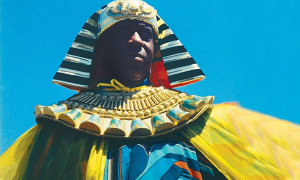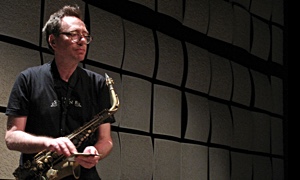Home » Jazz Articles » Jazz AI » Miles Davis' Influence On Jazz Piano, Jazz Composition, ...
Miles Davis' Influence On Jazz Piano, Jazz Composition, And Jazz Leadership

Jazz Piano
Davis was a trumpet player, but his influence on jazz piano cannot be overstated. He worked with some of the best pianists in the business, including Bill Evans, Herbie Hancock, and Chick Corea. Davis encouraged these musicians to explore new approaches to harmony and improvisation, and his collaborations with them produced some of the most innovative and groundbreaking music of the era.One of Davis' most important contributions to jazz piano was his emphasis on modal jazz. This style involves playing within a particular mode or scale, rather than relying on traditional chord progressions. This approach allowed for greater freedom in improvisation, and it helped to give jazz musicians a new way of approaching the piano.
Davis also helped to popularize the use of the piano as a lead instrument in jazz. Traditionally, the piano had been seen as a supporting instrument, providing rhythm and harmony for other instruments to play over. However, Davis saw the piano as a versatile and expressive instrument that could take on a lead role in jazz. His collaborations with pianists like Evans and Hancock showcased the piano's potential for melodic expression, and helped to solidify its role as a central instrument in the jazz ensemble.
Jazz Composition
Davis was a prolific composer, and his music had a profound impact on the development of jazz composition. He was always searching for new sounds and new ways of approaching music, and his compositions reflected this exploratory spirit. Davis' music was known for its sophisticated harmonies, innovative use of space and silence, and its ability to evoke complex moods and emotions.One of Davis' most famous compositions is "So What," which is built around a single chord and features a distinctive bass line. This minimalist approach to composition was groundbreaking at the time, and it influenced countless jazz musicians who came after Davis.
Davis was also known for his collaborations with other musicians, and he often encouraged his bandmates to contribute their own compositions to his albums. This collaborative approach to composition helped to create a more democratic and inclusive approach to jazz music, and it helped to foster a sense of community within the jazz world.
Jazz Leadership
Davis was not only a great musician, but he was also a great leader. He had a clear vision for his music, and he was not afraid to take risks and try new things. Davis was known for his ability to bring out the best in his fellow musicians, and he was always looking for ways to challenge and inspire them.One of the ways that Davis showed his leadership was by encouraging his bandmates to improvise freely. He believed that improvisation was the essence of jazz music, and he encouraged his musicians to explore new ideas and take risks in their playing.
Davis was also a master at assembling talented musicians and creating cohesive ensembles. He was known for his ability to bring together musicians from different backgrounds and styles, and he was always looking for ways to push them to new heights.
In conclusion, Miles Davis had a significant impact on jazz piano, jazz composition, and jazz leadership. His influence can be seen in the music of countless jazz musicians who came after him, and his innovative and exploratory spirit continues to inspire new generations of jazz musicians today.
This article was created using ChatGPT as part of All About Jazz's artificial intelligence study..
< Previous
A Selection Of Varied And Exciting Ne...
Comments
Tags
For the Love of Jazz
 All About Jazz has been a pillar of jazz since 1995, championing it as an art form and, more importantly, supporting the musicians who create it. Our enduring commitment has made "AAJ" one of the most culturally important websites of its kind, read by hundreds of thousands of fans, musicians and industry figures every month.
All About Jazz has been a pillar of jazz since 1995, championing it as an art form and, more importantly, supporting the musicians who create it. Our enduring commitment has made "AAJ" one of the most culturally important websites of its kind, read by hundreds of thousands of fans, musicians and industry figures every month.






















